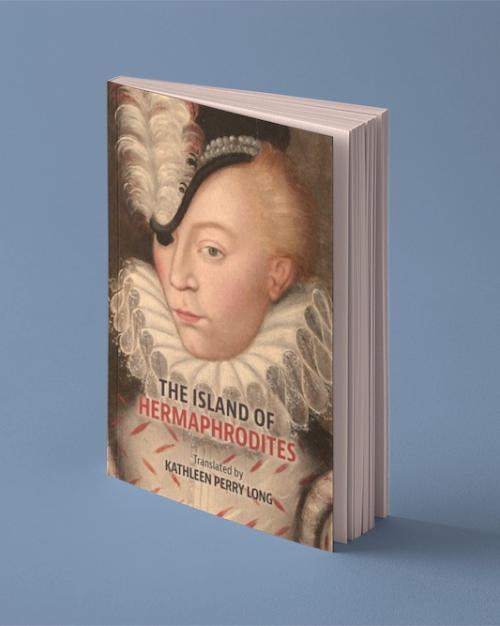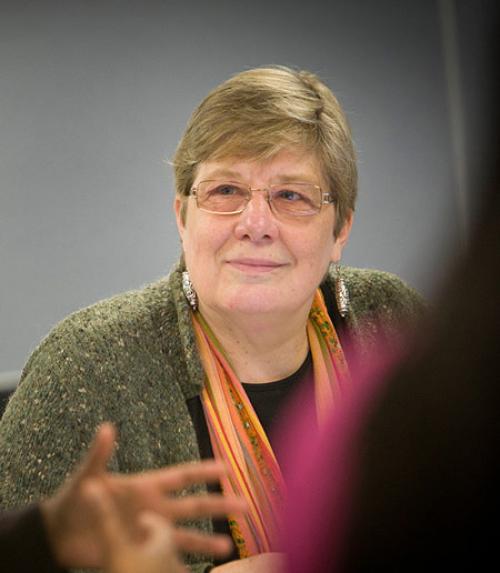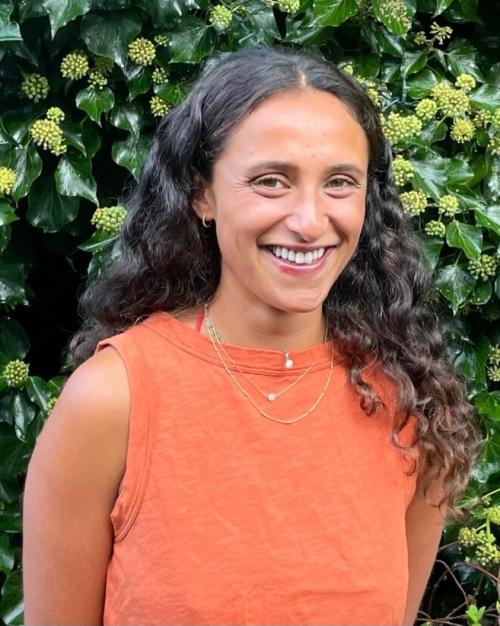Amber Bal is a doctoral candidate in romance studies from London, England. She earned her bachelor’s degree at the University of Oxford and now studies the urban-rural divide in 20th and 21st century French and Francophone literature under the guidance of Imane Terhmina at Cornell.
What is your area of research and why is it important?
My research highlights the varied importance of “reading for the rural” in Francophone African literature. I believe that an urban-rural divide is under-acknowledged yet at the center of many histories of 20th century Francophone West and Central Africa. To show this, I work from a spatial approach to contemporary literature, arguing that non-urban spaces significantly expand existing understandings of colonialism, capitalism, and national independence, and consequently, more fully conceptualize “modernity”. Sites such as the village, the Catholic Mission, agricultural hinterlands, and the railway attest epochal yet ambivalent shifts in technology, infrastructure, and social organization as well as shed light on the contradictions and occasional banality of the “grand” modern project.
What are the larger implications of this research?
I am particularly interested in how landscapes “constructed” in fiction and nonfiction influence one another in addition to shaping scientific policy and environmental attitudes. I think this comparative reading shows the importance of literature for environmental history. More broadly, my research highlights transnational flows of ideas to show African authors’ vital contributions to “global” literary traditions and broader intellectual histories. Most especially, my readings of writers like Mongo Beti, Léopold Sédar Senghor, and Boubacar Boris Drop seek to refute the tacit assumption that African literatures are solely oppositional or self-referential.
You were selected as a 2023-2024 Chateaubriand Fellow. What does this mean to you?
I think it made the transatlantic Francophone-Anglophone relationship feel more “concrete,” and this relationship has also permitted me to join a group of fellows with vastly different research areas and disciplines to my own and to learn from them.
What does this fellowship allow you to do that you may not have otherwise been able to?
The Chateaubriand has allowed me to build relationships with French academics and graduate students, organise colloquia and seminars with them, and generally to join a community of researchers with almost identical preoccupations to my own which is a rare privilege. The fellowship has also allowed me to undertake archival research in both Paris and the South of France which was central to exploring the history of the “sites” at the center of my dissertation.
President Pollack has designated this academic year’s theme as freedom of expression. What does freedom of expression mean to you?
Freedom means the ability to make connections between literatures and ideas spanning continents and centuries. Freedom also most importantly means to me the ability to critically revisit the narratives we have surrounding 20th century geopolitics, development, colonialism, and independence precisely in order to trace continuities (in situation, in attitudes) with the present.
What are your hobbies or interests outside of your research or scholarship?
I am an avid cyclist, walker, and swimmer (not all three at the same time) so can generally be found on a bike, on a hill, or in the pool when not in the library. I also am an amateur but very eager baker.
Why did you choose Cornell to pursue your degree?
I was particularly attracted by the expansive graduate training I could obtain at Cornell; from critical theory, to reading beyond my specialisation within French literature, and most especially because of Cornell’s renowned Africana studies department where I ended up taking a majority of my courses.





